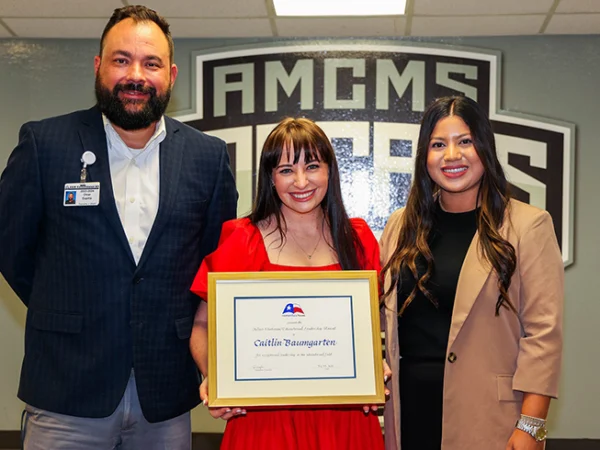What creatine can do for you
What we once thought was just a sports supplement for athletes is now known to be beneficial throughout the entire lifespan, from infancy to the later years of adulthood.
This supplement is creatine, a naturally occurring compound that is stored in the body and provides energy. Kinesiology expert Dr. Richard Kreider said his most impactful research is his exploration of what creatine can do for athletes and average Joes alike.
“In 1993, we started research on creatine supplementation and were the first ones in the U.S. to explore if adding creatine to the diets of athletes would increase strength, muscle mass and performance,” said Kreider, professor in the Department of Health and Kinesiology.
As a result of that research, creatine became a leading supplement given to power athletes to optimize performance and strength.
Kreider said the compound provides energy when there is a lack of oxygen availability, which can be beneficial during stroke and other conditions that limit oxygen availability. Creatine then provides essential energy necessary to meet the metabolic demands of the cell.
“For this reason, after conducting research in athletes and finding that creatine generally increases strength, endurance, muscle power and muscle mass, researchers started to say, ‘what would happen if we gave creatine to people with certain diseases or those who are aging?’,” Kreider said.
Since then, there has been more research on creatine and its health benefits.
Creatine for pregnancy and children
Creatine in the third trimester of pregnancy has been shown to reduce the incidents of birth asphyxia — when a baby’s organs do not receive enough oxygen and nutrients — and increase the survival rate in animals.
“So we’re now looking at creatine in the third trimester of pregnancy much like folate, as a way to protect the child and mother,” Kreider said.
Some children are born with creatine synthesis deficiencies, which reduces the ability transport creatine into the cell or synthesize it properly. These deficiencies have an impact on cognitive function and even account for 2% of intellectual disabilities in boys.
“When identified early on and provided creatine in the diet, they will have a normal progression throughout their lifetime,” Kreider said.
For adolescents who are interested in building muscle, Kreider said providing creatine and other strong nutritional practices can prevent their interest in harmful anabolic performance-enhancing steroids.
Creatine for older adults
Athletes typically take creatine to get bigger and stronger, as well as recover from injuries better. Kreider said adults do not have to be interested in bulking up to see benefits from creatine.
“Creatine supplementation in older individuals has been shown to help maintain muscle mass,” Kreider said.
As we age, we have less creatine availability because we typically eat less creatine-containing foods, such as meats and fish. Supplementing a diet with creatine can prevent muscle mass loss and promote fat loss, aiding in body composition management.
Older adults can benefit from creatine for cognitive function as well. The supplement has been shown to lessen decline in cognitive abilities as we age.
Creatine for disease and virus management
For individuals with diabetes, Kreider said along with exercise training, creatine has been shown to improve insulin sensitivity, the management of glucose and training adaptations.
Creatine has also been reported to reduce cholesterol and can aid in regulating homocysteine levels — an indicator of heart disease — and improve the effectiveness of antidepressant medications.
Kreider said there is also research now on creatine’s impact on the immune system.
“There are some cells, T lymphocytes, that need creatine, and under stressful situations, like under virus load if it doesn’t have enough creatine, the immune system can’t respond as well,” Kreider said.
He said there is also evidence that creatine can affect post viral fatigue.
“COVID-19, for example, is a situation where you get very chronically fatigued, and we think now that creatine may be a way to help people get back to normal activity and help people recover from post viral fatigue,” Kreider said.
Even certain cancers are affected by creatine. Providing creatine to cancer patients has been shown to slow the progression of some tumors in those that are deprived of creatine.
Kreider said creatine is a prime example of how sport nutrition research has now transitioned into health and medicine, benefitting the general population.
“What was once seen as a supplement just for athletes has now helped millions of people over the last 30 years improve their health and fitness and helped them manage a number of diseases,” Kreider said.
As commonly recommended, you should always consult with your physician or other health care professional before taking any medication, vitamin, or nutritional, herbal or homeopathic supplement.
About the Writer
Heather is responsible for news coverage in the Department of Health and Kinesiology, as well as the Department of Educational Administration and Human Resource Development.
Articles by HeatherFor media inquiries, contact Justin Elizalde.











